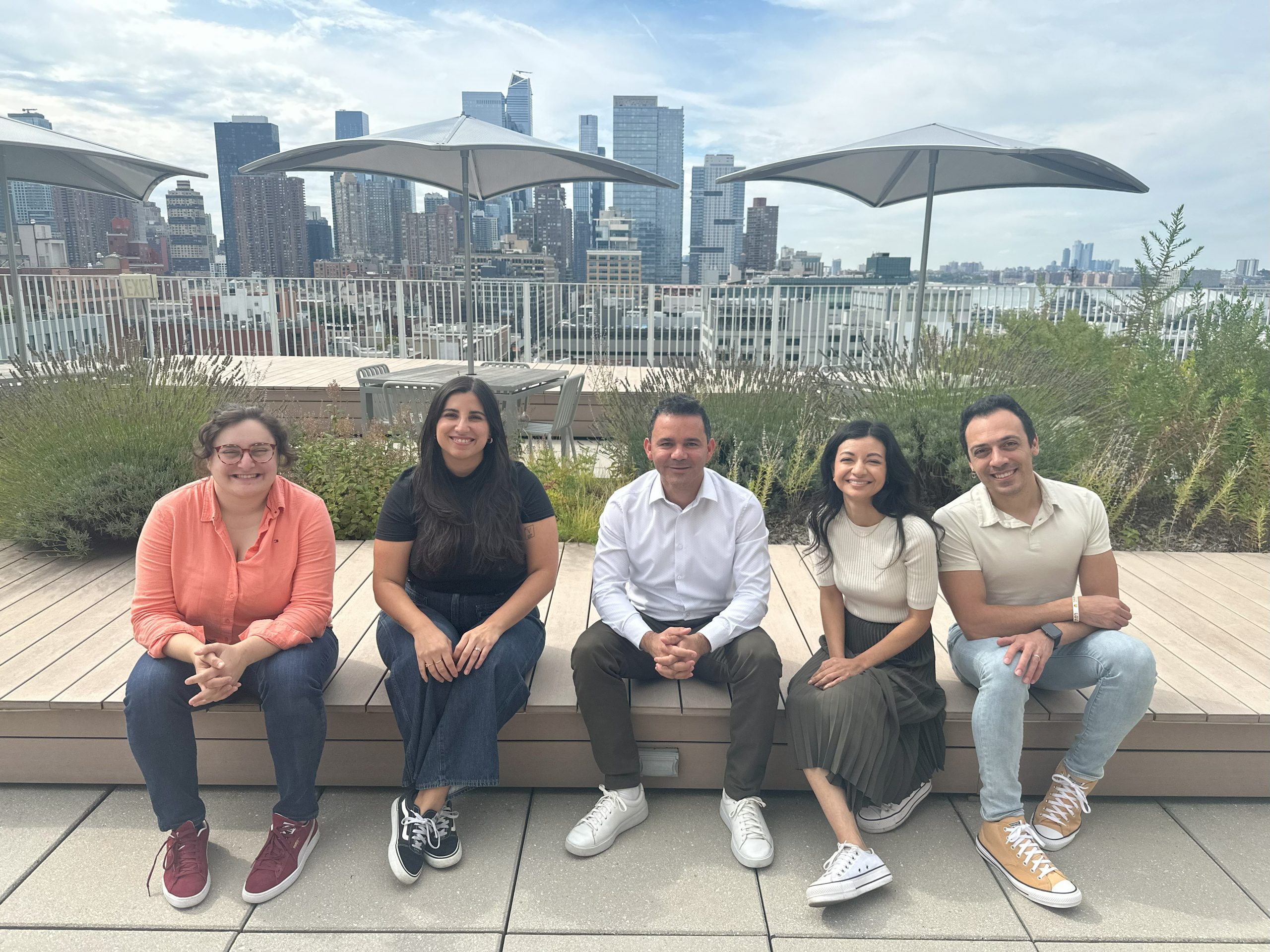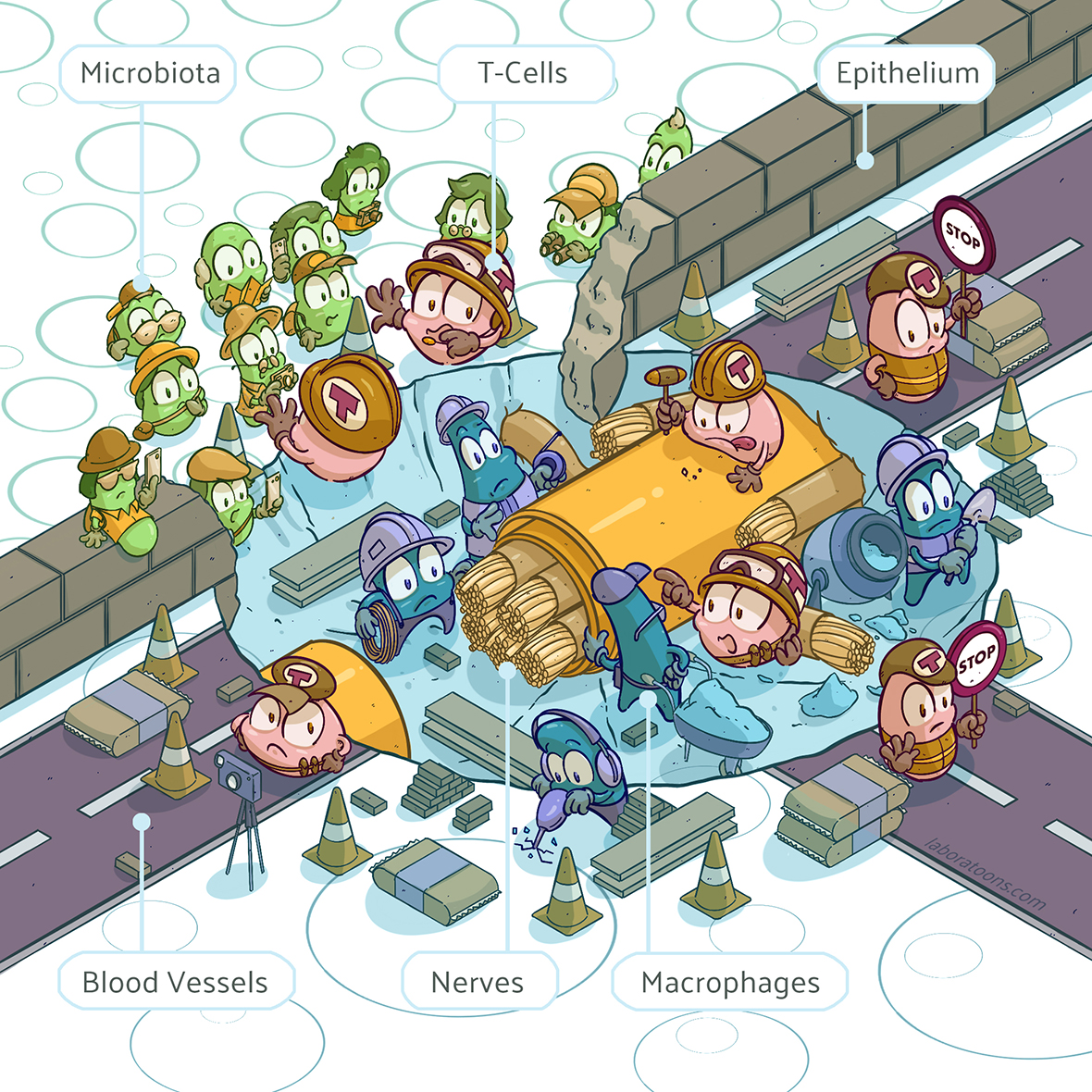Our Mission
Our goal is to transform the way we understand and treat chronic inflammatory diseases, including diabetic foot ulcers, psoriasis, atopic dermatitis, COPD, and neuropathies, as well as mental health disorders linked to inflammation, tissue injury, and repair. By uncovering the neuroimmune mechanisms that govern these processes, we aim to develop personalized, targeted therapies that improve clinical outcomes and enhance quality of life for patients.
Our laboratory builds on a strong foundation in immunology, neuroimmunology, neurobiology, and host-microbiota interactions to investigate how neuroimmune circuits regulate barrier tissue function in both homeostasis and disease. We focus on three major research areas:

Peripheral Neuroimmune Regulation of Barrier Tissues in Homeostasis and Inflammation
We study the bidirectional communication between immune cells and sensory neurons at barrier sites such as the skin and respiratory tract. Our work explores how microbiota, inflammation, and tissue injury influence sensory neuron plasticity, including development, regeneration, hyperinnervation, and degeneration. Conversely, we investigate how sensory neurons modulate immune responses, inflammation, and tissue function in diseases such as chronic non-healing wounds, psoriasis, atopic dermatitis, COPD, and pneumonia.
Immunoception: Brain Sensing of Inflammation and Tissue Injury
We examine how the brain detects and responds to peripheral inflammation and injury, focusing on the orchestration of systemic responses that promote repair or perpetuate disease. Our research spans organs with differing regenerative capacities, including the liver, kidney, bladder, lung, and heart, with the goal of identifying key brain regions, neuronal circuits, and neuromodulatory factors that can be harnessed to control inflammation and facilitate tissue restoration.
Neuroimmune Pathways Linking Peripheral Inflammation and Mental Health
We investigate how chronic peripheral inflammation, non-healing wounds, and fibrotic tissue environments contribute to mental health disorders such as depression, anxiety, eating disorders, and addiction. Our studies also explore the reverse axis, how psychological conditions modulate immune responses and impact tissue injury and repair, focusing on shared neuroimmune mechanisms that underlie this bidirectional relationship.
Our Approach
Research in our laboratory leverages a multidisciplinary approach, integrating cellular and molecular immunology, neurobiology, microbiology, behavior, and multi-omics techniques. We harness a broad spectrum of preclinical models to explore the dynamics of inflammation, specifically utilizing models of bacterial commensalism, skin inflammation (psoriasis and atopic dermatitis) and wound healing, neuropathy, nerve injury, pneumonia, and sepsis. Importantly, our studies span both adult and early-life contexts.
We complement in vivo mouse models with advanced in vitro cultures, including organoids and 3D bioprinted engineered tissues. Our primary techniques include spectral flow cytometry, confocal and intravital microscopy, optogenetics, and chemogenetics. Our central aim is to unravel the intricate interplay among microbiota, host immunity, and sensory neurons within barrier tissues during inflammation, alongside how these biological processes are sensed and modulated by the brain.
All our neuroimmune findings undergo rigorous validation in relevant human tissues, ensuring translational relevance and applicability.

Interested in joining our team?
The Enamorado lab is always seeking enthusiastic and passionate researchers in neuroimmunology (undergraduates, graduate students, medical students, residents, postdocs, and associate researchers) to join our team.
Prospective applicants are encouraged to send their application, comprising a cover letter detailing their scientific interests and alignment with our mission, along with a CV or Biosketch and contact information for three references, to NerisMichel.Enamoradoescalona@mssm.edu.

